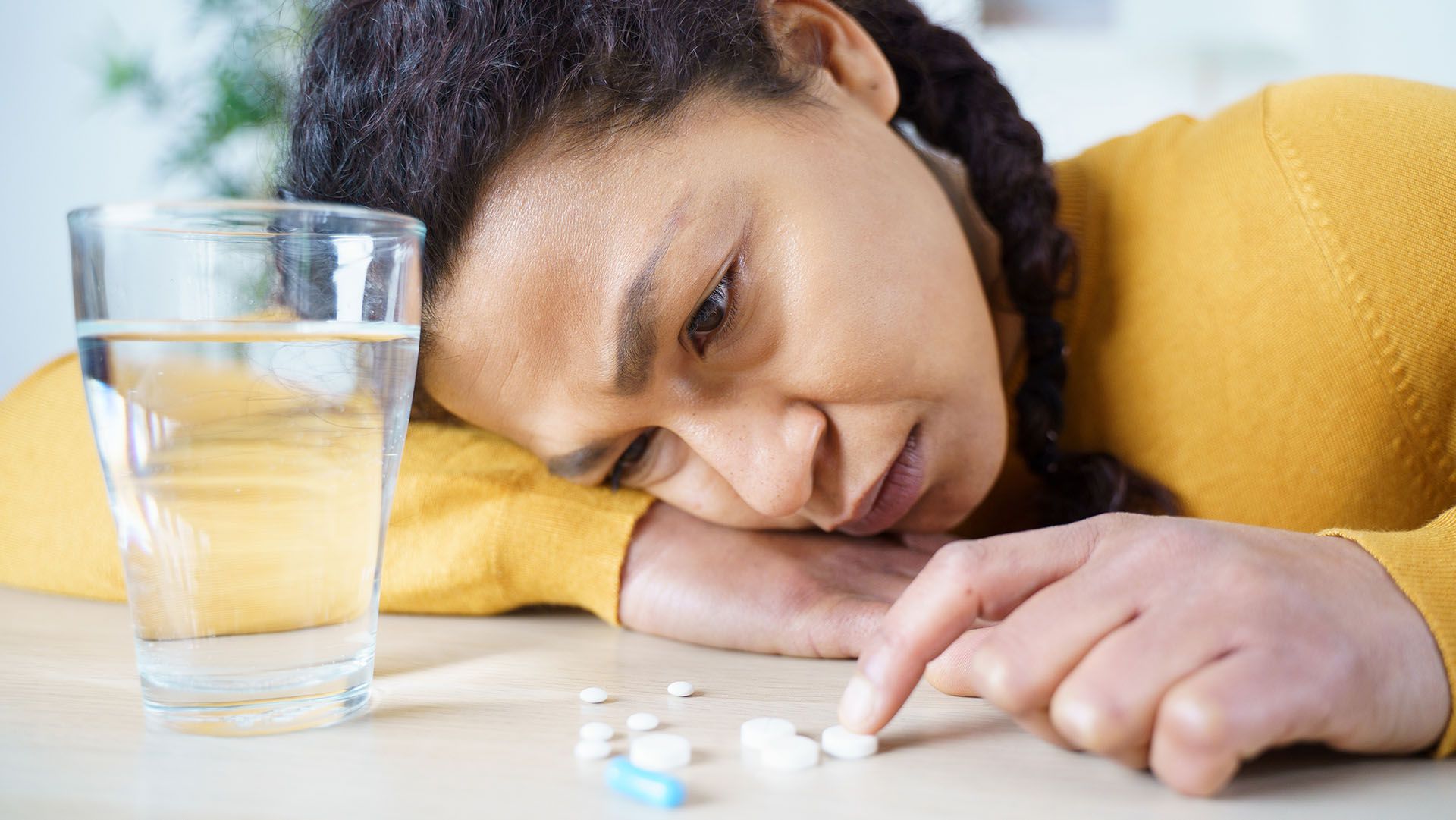Helping Someone with Depression
What is Depression?
Many people talk about depression and they assume that sadness is the result of it. But, the fact is sadness eventually fades and depression does not. People who suffer from depression are wounded badly in their hearts compared with people who feel sad.
It is important to know that depression is an intense feeling of hopelessness and overwhelming despair that lasts for several weeks and interferes with all aspects of daily life. Moreover, the societal attitudes toward mental health have improved, but there is still a stigma associated with depression. Those who are suffering do not seek treatment for this very manageable condition. Research findings indicate that those who do are extremely successful in the recovery process.
Who Does Depression Affect?
It is believed that about 1 in 10 Canadians experience a major depressive episode at some point in their lifetime. Depression is one of the leading causes of disability globally. Individuals who have a family history are more susceptible to developing the disorder, as are those with a chronic illness.
Few reports have also revealed that the number is approximately 17.3 million Americans or 7.1 % of adults in the United States. The Centers for Disease Control and Prevention (CDC) report that women are twice as likely to be diagnosed with depression than men. About 80% of individuals suffering from depression report challenges with work, at home, and in social interactions, due to their condition.
Forms of Depression
There are several types of depression. They have many characteristics in common, but each has its own unique qualities that direct diagnosis and treatment by mental health professionals. It is advisable for anyone displaying these symptoms should consult a medical practitioner immediately.
Major Depressive Disorder
As research into mental illness has continued, understanding has evolved. What was once referred to as depression is now known as major depressive disorder, or major depression, and is the most common form.
It is believed that patients suffer feelings of hopelessness, on a daily basis, for most of the day, and for a relatively long period of time (at least two weeks). Some of the common symptoms include despondency, difficulty sleeping or sleeping too much, fatigue, eating problems, chronic pain, loss of interest in activities, difficulties with memory or concentration, anxiety, and constant worry.
Few people may have suicidal thoughts and it requires immediate intervention. You need to know that 90% of individuals who take their own lives have a mental illness, so it is crucial for friends and family members to take suicidal behavior seriously.
Persistent Depressive Disorder
Pervasive Depressive Disorder is a major depression that lasts for more than two years. It is sometimes referred to as dysthymia or chronic depression. This condition makes all aspects of daily life challenging, particularly relationships.
The common symptoms incurred for the person include deep sadness or hopelessness, low self-esteem, lack of interest in activities previously enjoyed, changes in appetite, disruption to sleep patterns, concentration or memory problems, difficulties at school or work, loneliness, and social isolation.
This is a long-term condition, but the severity of symptoms can change for months at a time, improving for a while, then worsening again. Individuals suffering from this type of depression can begin to feel as though their illness is just a normal part of life. It is important to seek help from a mental health care provider, like a psychologist or psychiatrist.
A treatment plan including a combination of counseling, therapy, and/or medication can significantly improve quality of life and prevent symptoms from worsening.
Bipolar Disorder
Formerly known as manic depressive disorder, Bipolar disorder is characterized by periods of mania, or hypomania, alternating with depressive episodes. For diagnosis, patients must experience a manic episode that lasts seven days or longer, unless they are hospitalized. A depressive period may follow or precede the manic episode.
The symptoms experienced during a depressive episode are similar to those of major depression. These may include feelings of hopelessness, fatigue, changes in sleeping or eating patterns, difficulty concentrating, low energy, loss of interest in activities, and suicidal thoughts.
As an unmistakable difference, during a hyper period, patients have elevated levels of energy, a sleeping disorder, crabbiness, hustling musings or discourse, expanded confidence and certainty, bizarre hazardous conduct, and sentiments of euphoria. If the scene is serious, it might likewise incorporate visualizations or whimsical considerations. Bipolar disorder requires continuous therapy by a clinical expert who can give suitable drugs and treatment to deal with this intense, conceivably dangerous condition.
Depressive Psychosis
Now and then, people with significant wretchedness will encounter scenes of psychosis, mind flights, and silly reasoning, and they put some distance between reality. When this happens, it is known as a major depressive disorder with psychotic features. Another term for this condition is depressive psychosis or psychotic depression.
Physical symptoms include an inability to sit still, or slowed movements.
Again, this is a very serious condition that requires psychotherapy, counseling, and/or medication, ideally as part of an in-patient treatment program.
Postpartum Depression
Perinatal depression is a major depressive disorder that has its onset during pregnancy. Postpartum depression begins after the baby is born, typically within four weeks of giving birth.
The changes in hormone levels during and following pregnancy are adequately noteworthy to adjust the manufactured make-up of the mother’s brain. This habitually prompts genuine perspective changes. Nonattendance of rest during this time compounds this effect.
Other signs to watch for are sadness, anxiety, anger or rage, exhaustion, and extreme worry about the baby’s well-being. Individuals who have major depressive disorder prior to pregnancy are at greater risk, but anyone can develop this condition.
Different signs to look for are bitterness, tension, outrage or fierceness, fatigue, and extraordinary stress over the child’s well-being. People who have significant burdensome issues preceding pregnancy are in more serious danger, yet anybody can build up this condition.
Seasonal Depression
Seasonal Depression, also referred to as seasonal affective disorder (SAD) is a major depressive disorder that is associated with a lack of daylight. The symptoms come and go with the seasons, typically worsening in winter, and lessening in spring. Individuals suffering from this form of depression often experience loneliness, social withdrawal, increased need for sleep, and feelings of hopelessness.
Suicidal thoughts are very common and should be taken very seriously by friends and family members. Waiting for spring for them to subside may be leaving it too long. Treatment by a mental health care provider is essential.
Situational Depression
Formally known as adjustment disorder with depressed mood, situational depression is set off by explicit events. Circumstances that frequently bring about this specific kind of despondency may incorporate the passing of a friend or family member, a genuine sickness, getting separated, being in a damaging relationship, or having monetary troubles or legitimate issues.
While sentiments of pity and tension are a typical reaction to a significant life change, situational sadness happens when those emotions are messed up with regard to the conditions, and altogether sway everyday living. Symptoms can include uneasiness, sentiments of misery, continuous crying, expanded or diminished craving, rest interruptions, throbbing painfulness, weakness, and withdrawal from social exercises.
Typically, there is an onset within 3 months of the traumatic event and improvement within 6 months, so this condition is not permanent. Support groups and/or counseling can be extremely helpful for managing symptoms.
Atypical Depression
Atypical depression is often referred to as major depressive disorder with atypical features. It is characterized by periods when depression symptoms subside temporarily, as a reaction to positive life events.
Some of the common symptoms involved in this depression include increased appetite, weight gain, sleeping too much, fatigue, a heavy feeling in the limbs, and oversensitivity to criticism or rejection. Challenges at work, school, and with relationships are very common.
Feeling suicidal is another, very serious symptom of this type of depression, as it is with the other forms. It is extremely important to be under the care of an expert in mental health care in order to proactively manage the fluctuations in mood and their effects.
What Causes Depression?
It is unclear what causes depression or other mood disorders. Research has identified a variety of predictors that an individual may be more likely to develop this illness.
One of the risk factors associated with all forms of depression is family history. The National Alliance on Mental Illness (NAMI) reports that approximately 30% of individuals diagnosed with depression have a genetic predisposition to this condition.
A chemical imbalance in the brain is another cause of depression that has been well documented in the research. Serotonin and norepinephrine are two naturally occurring neurotransmitters. Low levels of these are linked to major depressive disorder. Many anti-depressants include chemicals to boost their levels. When used as prescribed, these can be very effective in lessening the symptoms of depression.
Personality traits can also be a factor. The way an individual sees the world can affect how they see life events. A few people tend to not acknowledge beneficial things and to turn out to be effortlessly overpowered by challenges. They have a pessimistic perspective the entirety of the time. This can decide if they become discouraged.
Childhood experiences, particularly traumatic events, can affect the way a person responds to outside events. A pattern of negative thinking develops at a young age that eventually results in developing a depressive personality style.
Stressful life events and significant changes may trigger the onset or worsen the depression. Ongoing challenges at work or school, and in relationships with others, can take a toll on mental and physical health. Stressors such as financial difficulties, retirement, job loss, having a baby, and the death of a loved one are all a normal part of life. However, in a vulnerable person, they are often enough to worsen a depressive illness.
Physical illness, or the medications to manage it, can be another risk factor associated with both depression and substance abuse. Conditions like hepatitis, influenza, diabetes and anemia can all cause symptoms of depression, as can the prescription drugs used to treat them. Those medications are often misused and frequently lead to addiction.
Depression and Substance Use Disorder
Mental illness is strongly linked to addiction, as one in four people suffering from depression also has a substance use disorder. It is a complex relationship – it is nearly impossible to determine whether substance abuse is caused by a mental health condition, or if the opposite is true.
Many individuals turn to drugs and alcohol when they are struggling, and when their condition is not well managed.
Lamentably, liquor use can trigger misery indications like bitterness, laziness, and sentiments of sadness, since it influences the focal apprehensive system. The discouraged individual at that point devours more to stifle those feelings, setting off more symptoms. An endless loop is started that isn’t anything but difficult to end.
Significant discouragement puts people in incredible danger of self-destruction, self-mischief, or inadvertent injury. It can likewise debilitate the resistant framework, making them more helpless to getting a genuine physical illness. Liquor or medication misuse builds an effect on mental and physical prosperity drastically.
Research findings indicate again and again that many people with an addiction also have a mental health condition. This is known as a dual diagnosis. It is critical to treat the illnesses with an integrated approach, simultaneously.
Treatment Options
Depression can have such a devastating impact on quality of life, and on the ability to function at work, at home, and in social interactions. It has a profound impact on both mental and physical health, robbing its victims of the enjoyment of favorite activities and major events. Many individuals suffer without ever seeking help.
This is so unfortunate, as depression is highly manageable.
The most effective treatment often involves a combination of counselling and anti-depressant medication. As part of a comprehensive plan, lifestyle changes in diet, exercise, and sleep patterns, as well as connecting more with loved ones may also help alleviate symptoms.
There are many counselling approaches available, and the most appropriate for each individual is chosen in consultation with a medical professional. Cognitive Behaviour Therapy (CBT) is a type of psychotherapy that is often used with patients suffering from depression, with great success. Therapists help patients analyze their thought patterns, feelings, and behaviours, and develop new strategies for managing emotional upset, and stressors.
Treating a Dual-Diagnosis
This can be challenging, as each disorder can trigger and intensify the other. Addiction and mental illness are strongly linked and must be treated together. Failing to do so can make each condition worse.
Treating an individual with a dual diagnosis must be done by an expert in both mental health and substance abuse. Participation in a rehab program that includes therapy, counselling, peer support groups, medically supervised detox, and an aftercare plan offers the best chance of ongoing, sustainable recovery.
Coping With Depression
When you are facing serious depression, then it is essential to seek the help of a professional immediately. That is the first step toward freedom from this crippling condition.
You now have a personalized treatment suiting to the unique needs of every individual, in consultation with a medical practitioner. Taking an active role in this process may help to ensure its effectiveness, and may even speed up recovery. However, none of that can happen until medical intervention is sought. This probably seems overwhelming, but might be life altering.












